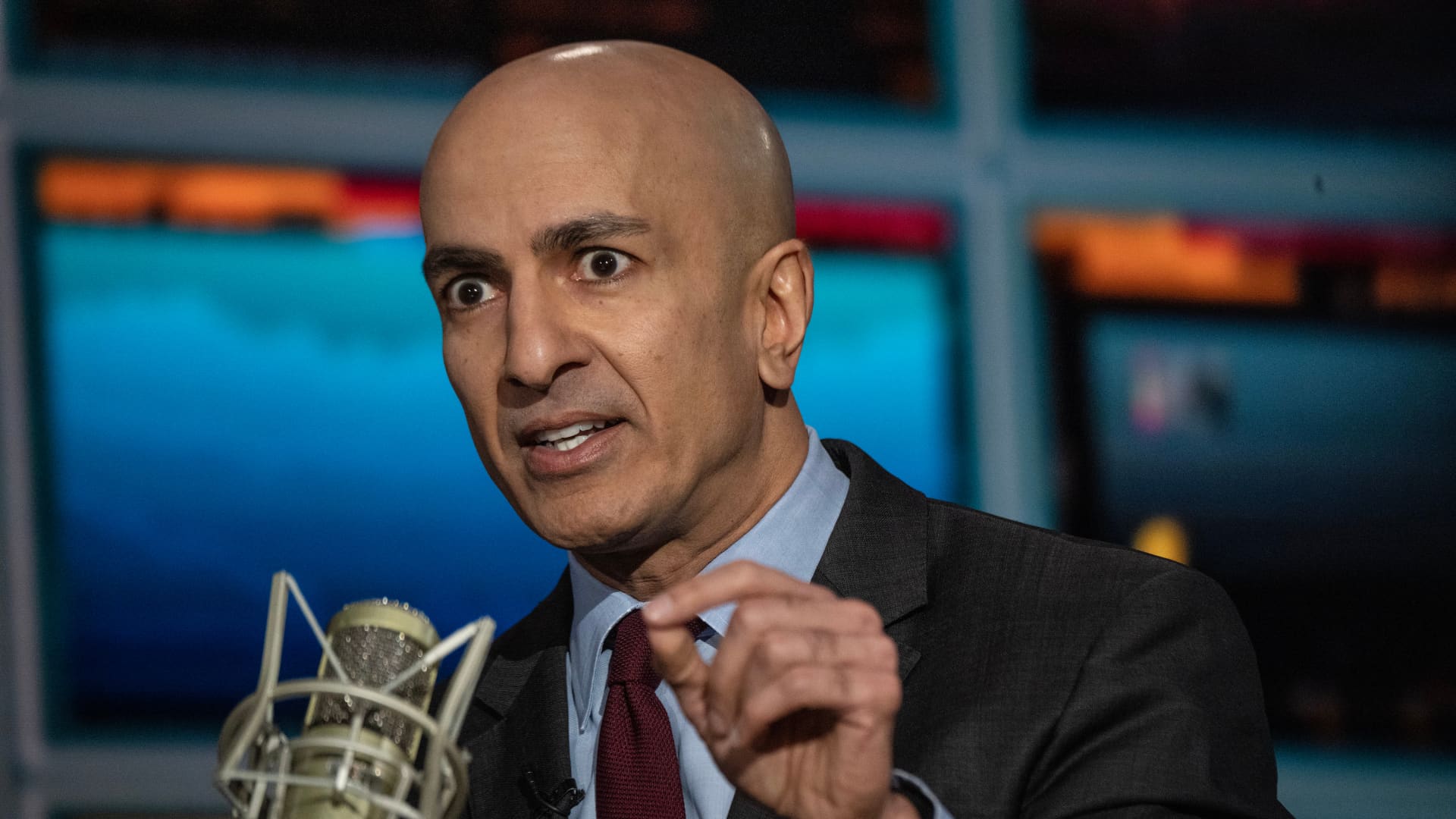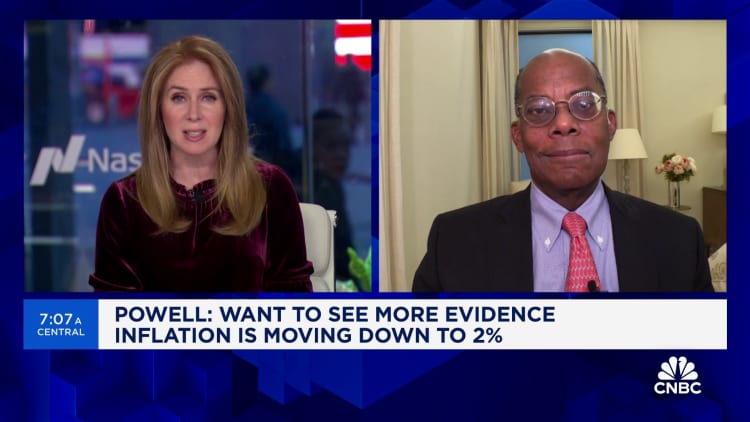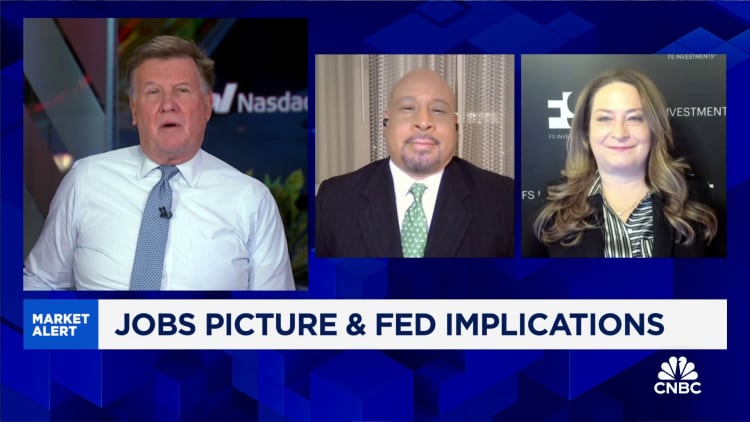
Neel Kashkari, president and CEO of the Federal Reserve Bank of Minneapolis, during an interview in New York on Nov. 7, 2023.
Victor J. Blue | Bloomberg | Getty Images
Interest rates running at their highest levels in about 23 years are not hurting the economy and could buy policymakers more time before deciding whether to cut, Minneapolis Federal Reserve President Neel Kashkari said Monday.
In an essay released on the central bank’s website, Kashkari said economic developments have shown that Fed policy is not as restrictive on growth as it appears on the surface.
That means the longer-run “neutral” rate, or the level that is neither restrictive nor stimulative, is probably higher than before the Covid-19 pandemic.
In essence, what would appear to be tight monetary policy judging by history over the past 15 years or so no longer looks that way, meaning nominal rates could hold higher for longer without harming the economy.
“This constellation of data suggests to me that the current stance of monetary policy … may not be as tight as we would have assumed given the low neutral rate environment that existed before the pandemic,” Kashkari wrote.
The implications are important as the Fed contemplates when to start, how much it should cut and how quickly should it do so to get back to a neutral setting. Markets have been betting on an aggressive move lower, but recent statements from central bank officials indicate little need to hurry.

“It is possible, at least during the post-pandemic recovery period, that the policy stance that represents neutral has increased,” wrote Kashkari, a nonvoting member of the rate-setting Federal Open Market Committee this year. “The implication of this is that, I believe, it gives the FOMC time to assess upcoming economic data before starting to lower the federal funds rate, with less risk that too-tight policy is going to derail the economic recovery.”
Kashkari’s comments mirror those from Federal Reserve Chair Jerome Powell in recent days.
During his post-meeting news conference last Wednesday and in an interview broadcast Sunday evening with CBS’ “60 Minutes,” Powell asserted that a March cut is unlikely and agreed with the FOMC’s December projection for three quarter-percentage-point cuts this year.
More specifically to Kashkari’s argument, Powell noted that the negative effects he feared from the series of rate hikes the Fed implemented have not come to pass. The Fed hiked its benchmark overnight rate 11 times worth 5.25 percentage points in a tightening cycle that ran from March 2022 to July 2023.
“”It really hasn’t happened. The economy has continued to grow strongly. Job creation has been high,” he said on “60 Minutes.” “So really the kind of pain that I was worried about and so many others were, we haven’t had that.”
Despite widespread expectations for a recession, the U.S. economy as measured by gross domestic product grew at a 2.5% annualized pace in 2023. Payroll growth has held strong while inflation measures have eased.
Kashkari pointed to a variety of such data to show that the Fed hikes have not thwarted growth, leading to his conclusion that the neutral rate is likely higher than the 0.5% or so that Fed officials generally estimate.
There is no official “neutral rate,” and officials often stress that it can only be estimated but never observed. Some policymakers like to use the fed funds rate minus inflation as neutral. Kashkari prefers the 10-year TIPS yield, which is now around 1.82%. He notes that it has risen since over the past year, but only modestly.
At the same time, business investment and big-ticket purchases have risen while housing numbers at least have moderated.
“These data lead me to question how much downward pressure monetary policy is currently placing on demand,” Kashkari said.
He did note that the data is not “unambiguously positive” and he will be watching items such as loan and credit card delinquencies for evidence of economic stress.

Don’t miss these stories from CNBC PRO:
